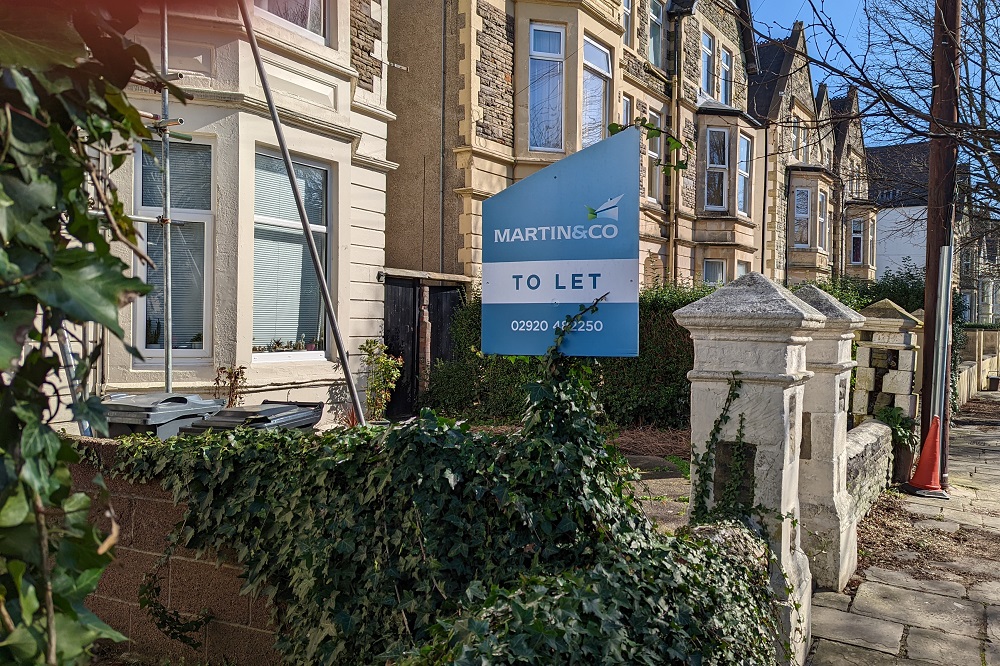Landlords organisation publishes ‘Shadow White Paper’ opposing rent controls in Wales

The National Residential Landlords Association has published a Shadow White Paper as part of its campaign to oppose the introduction of rent controls in Wales.
The report sets out how the group believes the nation’s private rented sector can be improved but rejects rent controls as “outmoded”.
The NRLA claims the prospect of rent controls being introduced next year are already beginning to bite, with its own research showing that 37 per cent of landlord plan to cut the number of properties they rent out, compared to just 11 per cent who said they planned to increase their number of rentals.
Significant
The report says: “The implementation of the Renting Homes Act represents some of the most significant changes the rental market in Wales has ever seen.
“At the same time, as the country recovers from the COVID pandemic, the supply of homes for long term rent is failing to meet strong demand. As the sector grapples with these twin challenges, the Welsh Government has pledged, in its Cooperation Agreement with Plaid Cymru, to publish a White Paper that would include proposals for rent controls.
“We share the same goal as the Welsh Government on private rented housing – we want a sector that is affordable, accessible and that works for both tenants and the vast majority of landlords who are fair and responsible.
“Ultimately, however, the drawbacks that will come from rent controls will significantly outweigh any possible short-term gains that might be delivered by such a policy, as evidence from both the UK and internationally shows clearly.
“The best way to improve the affordability of private rented housing is to address the fact that supply of private rented housing is failing to match increasing demand.”
The Shadow White Paper also for reforms to Rent Smart Wales to “improve enforcement against rogue and criminal landlords” along with the development of a Welsh Housing Survey to “ensure better informed, evidence driven, policy”.
Housing crisis
Last November Welsh Labour and Plaid Cymru announced a wide-ranging cooperation agreement that included a series of measures to tackle the housing crisis in Wales.
There is a commitment to taking ”immediate and radical action” to tackle the number of second homes in Wales and to make housing more affordable.
This include moves to establish rent controls, “using the planning, property and taxation systems” to cap second homes and greater powers for local authorities to increase taxes on second homes.
The proposals have been made in response to rocketing house prices across Wales and an increase in the number of second homes, which means many young people cannot afford to get on the property ladder.
Support our Nation today
For the price of a cup of coffee a month you can help us create an independent, not-for-profit, national news service for the people of Wales, by the people of Wales.





No more second homes in wales 🏴 and 500 percent taxes on second homes in wales 🏴
You shameless liberal* …No second homes must mean no second homes… All second homes to be taken into possession of the local authority they are situated in and rented out a standard council rate to people in Cymru.
*this is, of course, meant to be in good-natured fun and humour. I would never use the vile slur “liberal” on anyone who I hadn’t first sneaked a look on their phone.
It’s a pity we haven’t got a special “Senedd cat”, that way we would at least have some use for laughable twaddle sent in by scum like the The National Residential Landlords Association, in that we could use it to line its litter tray.
The only thing landlords are good for is filling whicker men with.
Now why on earth would landlords oppose rent controls? Hmmmm
Spokesperson Mandy Rice Davies said …….
Meanwhile, the association of thieves and pickpockets, have delivered a shadow white paper outlining opposition to being punished when caught.
The solutions suggested so far are all imperfect but these landlords must realise that the main problem is landlords of varying quality trying to excessively maximise profits and minimise personal responsibility. If a government is having to step in then it suggests landlord’s self-control or sense of fairness has not been sufficient.
But these landlords are right when saying there are concerns about what Senedd is suggesting so far.
Part of the problem is also too low wages, too high cost of living which is largely a UK government issue.